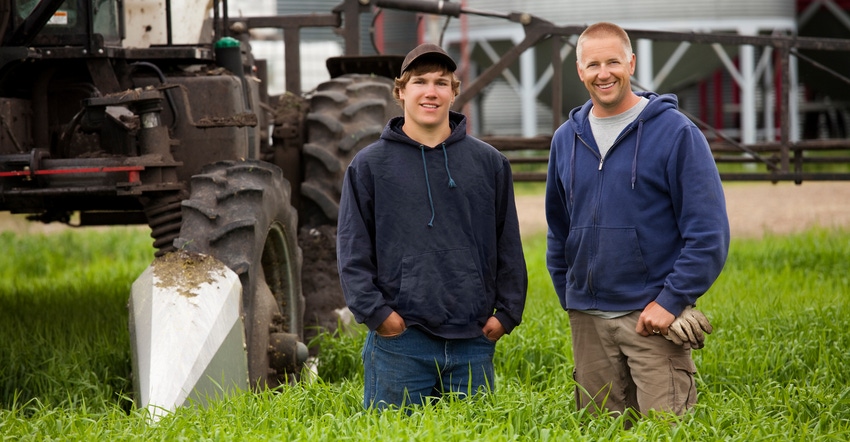
It’s never an easy subject to bring up at the family dinner table, but it’s an important one: succession planning.
It’s the subject of a presentation Allan Vyhnalek, Nebraska Extension educator in farm succession and transition, will cover at Husker Harvest Days. His presentation, “Farm and Ranch Transition, Succession and Estate Planning,” will take place every day of the show from 10:45 to 11:45 a.m. at the Hospitality Tent stage.
“Farmers and ranchers don’t like to think about succession because they don’t like to think about their demise. They assume it’s complicated, but they need to be able to think it through,” says Vyhnalek. “Research suggests we often defer planning until we have a critical event.”
The discussion will focus on the importance of planning and communication — whether succession planning, estate planning or negotiating leases.
“We’ll talk about, what are some of the roadblocks to good negotiation? Good negotiation gets blocked by emotion — huffing off and leaving the conversation, or crying,” he says. “We’re going to discuss, what are some checks and tips to work to avoid emotional messes?
“The big picture is, a lot of people look at negotiation as a zero-sum game. We have to be thinking bigger-picture than that — this is a net-sum game,” he adds. “If I’m renting land and want to pay $120 per acre, and you want $200, how do we create value for both? Can I write a bonus into the lease in case the income is higher than expected? Can you get me to do more things for you without having to pay for it — things we would typically consider landlord expenses?”
This includes different questions for estate planning and succession planning. “If we don’t have someone coming back to the farm, and we need to talk estate planning, what do we do about our demise? If we are succession planning, how do we treat everyone so it’s equitable — not necessarily equal? One issue is what happens at death, and the other is what happens when passing on the business.”
When the operation is going to continue, this involves defining roles for people in the operation — including the equivalents to a CEO, CFO, and chairman of the board — and who’s responsible for marketing, input purchases, agronomy decisions, etc. “Then you really follow through on that, so everybody knows what they’re responsible for, and they’re pulling their load to making it successful,” Vyhnalek says.
Within those roles, the on-farm heir might be the CEO, and the father might be the chairman of the board. However, Vyhnalek notes it’s still important for the older generation to let the younger generation make its own mistakes and learn for itself.
“There are things that have to be set up in terms of communication,” says Vyhnalek. “If what the younger generation is going to do isn’t going to take you under, let him make a mistake. He’s going to learn more from making a mistake than from getting mad at you by not letting him make a mistake.”
If there’s one motivator for sound communication and negotiation, it’s the goal of keeping the farm or ranch in business and in the family. As the average age of the American farmer increases, it’s worth considering what works best for the on-farm heir.
To learn more, email Vyhnalek at [email protected], visit UNL's ag cconomics site or check out his presentation at the Hospitality Tent, Lot 33, on the corner of Central Avenue and Main Street at HHD.
About the Author(s)
You May Also Like






